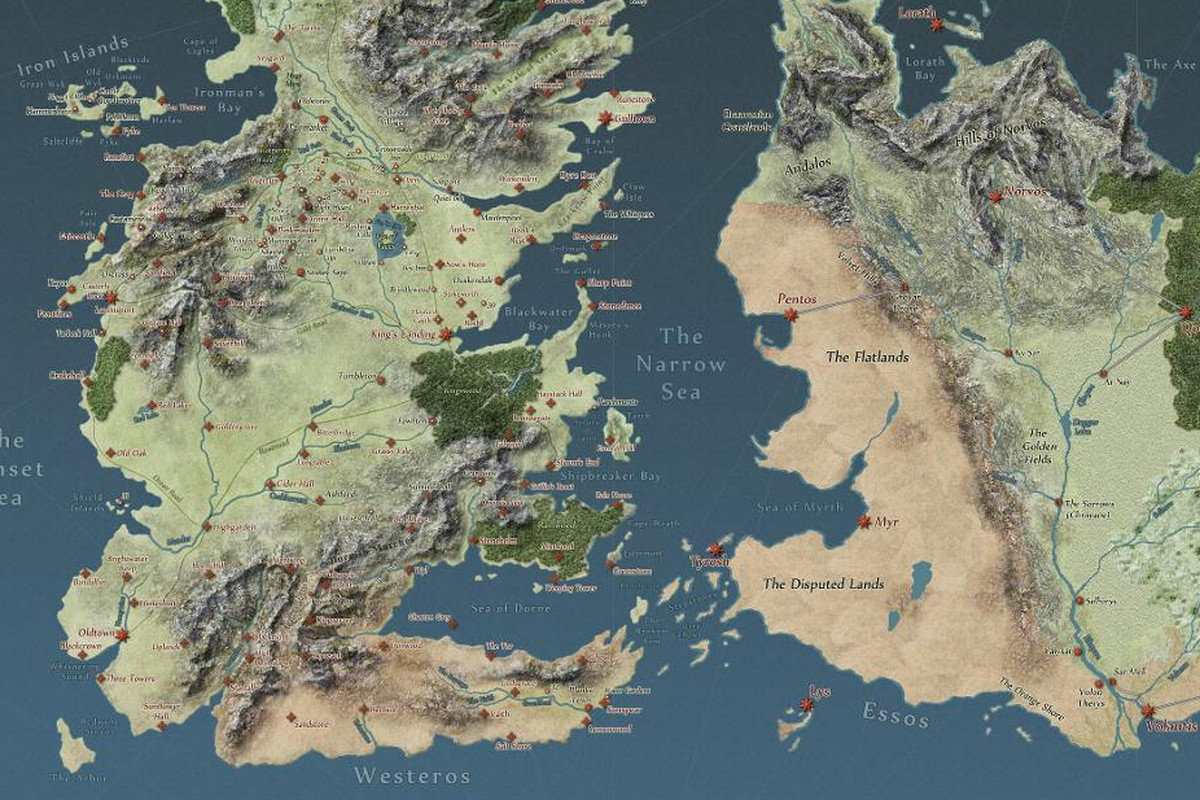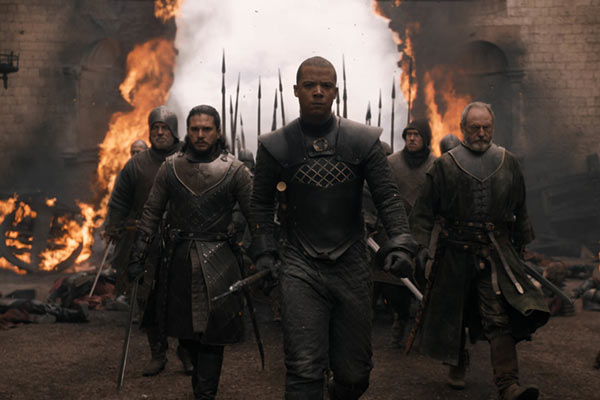
So I had no clue I'd be writing this, but here we are. That was a fairly satisfying episode of GoT after a long time.
Politics first: I'm back on Team Daenerys!
I was previously supporting a coup led by Jon, but that was because she was being a needy, vacillating type. However, her decision at King's Landing suggests that she has finally understood what she has to do. If I'm wrong in later episodes, I'd still be OK with Jon overthrowing her if she goes back to her previous behaviour patterns. Let the most capable one prevail!
Also read: Jon Snow Wins The Darwin Award For Being The Dumbest Bonga
The main point is that Westeros descended into civil war due to treason by the Lannisters and a larger crisis of legitimacy. I believe that crisis can only be resolved by a Targaryen who can unify the feuding kingdoms with overwhelming force and create a universal multi-ethnic multi-religious empire.
One reading of Daenerys's behaviour is that this was all just petty personal revenge. After all, nobody can deny that she has issues.
But there is another reading which I offer to you: she's finally understood that it is a Sovereign's task to rule. To understand this, one has to look beyond our (very necessary) 21st-century standards and try to place themselves in a fantasy version of our real-life Late Medieval era – which is roughly what the universe of GoT corresponds to. There were no universal notions of human rights and republics existed only on a very limited scale – like in the fascinating city-state of Braavos, which appears to be a mixture of our real-life oligarchic republics of Late Medieval Venice and the Early-Modern Netherlands.
An individual's rights were not recognized in the abstract sense that we today understand them (i.e. we are all born with a basic set of rights, etc) – and this was quite unfortunate. Most individuals (especially those who were not nobles) only had rights defined by their relationships to others in a complex hierarchy.

And this is something that Machiavelli and others tried to convey to rulers in their time. In the fractious, unpredictable and treacherous political climate of the kind of world depicted in GoT, you can't win everyone's love but you can win everyone's fear – especially in the initial stages, when ground rules have to be laid, petty tyrants like Cersei eliminated and examples created for the rest of the world.
Speaking of examples, King's Landing was quite the example! I am impressed by Daenerys's reasoning, which (even if you disagree it with it, as is happily your right in our less autocratic era) is far more well-considered than you'd imagine. She notes:
a) that severe measures have to be taken and she cannot allow Cersei to hold future generations hostage alongside the current one.
b) the people of King's Landing have not provided credible evidence of a desire to overthrow the Lannister tyrants - at least nothing compared to the slave revolts in Essos. A few bread riots or petty crime in a slum don't count, obviously.

In view of the above, you must also remember that Dany's campaign can't stop at King's Landing. There are the other kingdoms/regions of Westeros which have to be brought under central authority and they will fight for their petty little local feudal rulers very fiercely. The Vale, for example, will pose a massive strategic challenge, as will Dorne. By setting one grand example at King's Landing, further violence will become less necessary – just as Aegon Targaryen had managed to secure the North's allegiance without violence after burning down Harrenhal.
There is also the matter of rewarding her loyal troops and the Northerners. The treasury at King's Landing was unlikely to provide much reward, so it had to be compensated for with a general sacking and burning. This is how medieval armies operated.
This corresponds to real-life methods practised by the Mongol Khanate, which through brutal conquest created a new era of trade and intercontinental links. Some historians today call it the Pax Mongolica – those interested can read more in Timothy May's work The Mongol Conquests in World History.

Moreover, for Dany, there is also the matter of rewarding her loyal troops from Essos and the Northerners. The treasury at King's Landing was unlikely to provide much reward, so it had to be compensated for with a general sacking and burning. This is how medieval armies operated. If you didn't permit some looting, they could easily turn on you.
Her new empire will also need a new capital, and it is all well that King's Landing be razed and left a heap of ruins to ensure order in the future.
Now, politics aside, the realism factor - which they had thrown out the window so far.
There was much to complain about in previous episodes - the idiotically easy ending of the Whitewalkers, the fact that the Long Winter is no longer a factor and the hurried wrapping up of every plot line. Then in episode 4, I was particularly annoyed by how those ballistae mounted on ships by the Iron Fleet were able to take out a dragon.

We have some accounts from Ancient Rome and from Byzantine armies of their effectiveness - and while they could penetrate an individual soldier's armour, they certainly couldn't rip large chunks off ships or be accurate enough to take out a fast-flying target such as a dragon. I felt it was a major cop-out by the script-writers of the show - "bring in a magic catapult".
But, thankfully, the laws of physics once again started to apply in this latest episode.
Now I don't know where the script-writers will take it in the next episode. But this was good stuff.
